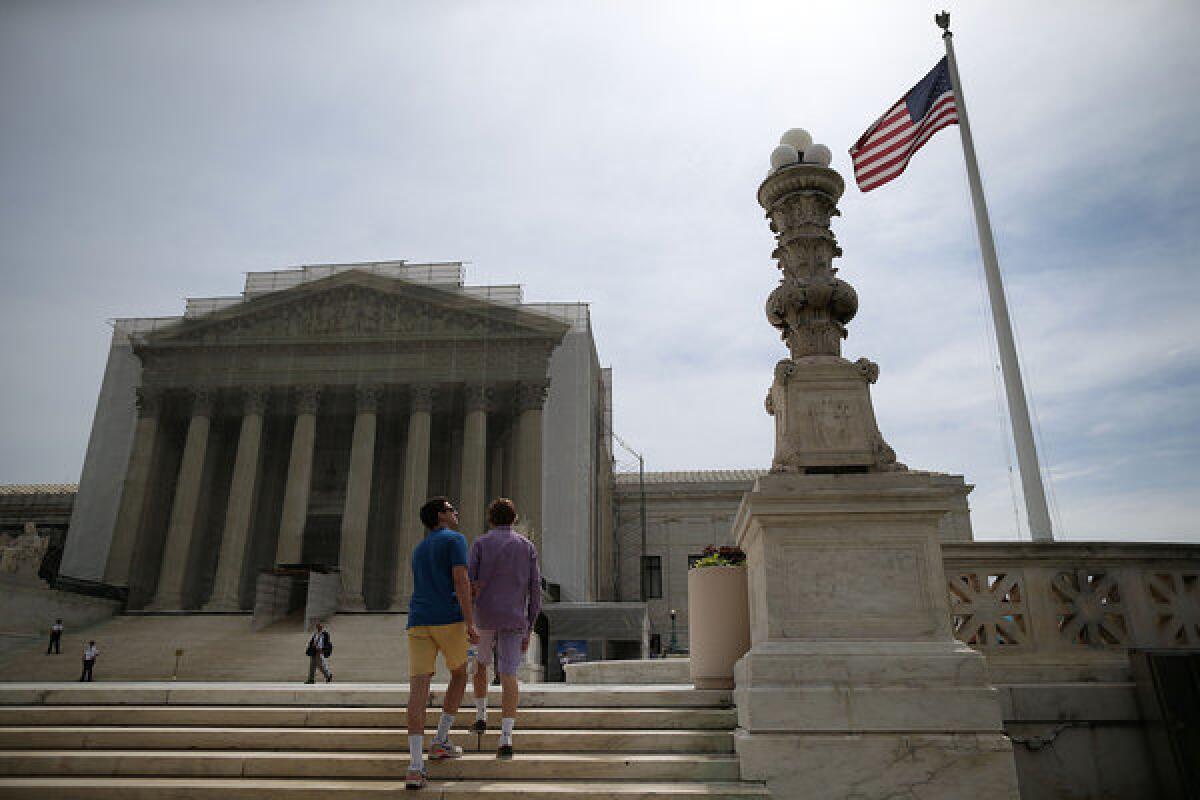Supreme Court fiddles while ethics questions burn

Currently, all federal judges are required to obey a Code of Conduct for United States Judges. There’s just one exception: the Supremes.
For Supreme Court justices, following the code of conduct is voluntary. Or, as Chief Justice John G. Roberts Jr. put it in his 2011 year-end report, all members “consult” the rules and “in this way, the code plays the same role for the justices as it does for other federal judges.”
For several years now there have been legislative efforts to require that high court justices adhere to the same rules set forth for all other federal judges; and today, a group of Democratic legislators are behind a renewed effort to address this disparity.
In his year-end report, Roberts lays out some arguments against such a move. First, the Supreme Court is organized differently than other federal courts; for example, there is no replacement for a justice who recuses him or herself from a case. Additionally, Roberts argues that the Supreme Court is exempt because a code of conduct can apply only to courts established by Congress.
A spokeswoman for Rep. Louise Slaughter (D-N.Y.), one of the legislators introducing the Supreme Court Ethics Act of 2013, counters Roberts’ second point. She argues, in an article in Mother Jones, that Congress can regulate court administration and that such an action would hardly be unconstitutional.
Constitutionality aside, the fact remains that many justices have engaged in activities that would not be permitted under the ethics code required of all other federal judges, as the Mother Jones article reports:
In 2011, for instance, [Justice Clarence] Thomas and Justice Antonin Scalia headlined a fundraiser for the conservative legal group, the Federalist Society. Ordinary federal judges couldn’t have done that. Both also have attended hush-hush political events hosted by Koch Industries that are billed as efforts “to review strategies for combating the multitude of public policies that threaten to destroy America as we know it.” Koch Industries is owned by the right-wing Koch family that’s been dumping millions of dollars in the Republican politics, particularly after the court decided in Citizens United to allow unlimited corporate money into the electoral system. The code also requires federal judges to recuse themselves from cases in which a spouse or family member has a financial interest, a rule that might apply to the Thomases.
The last citation is a reference to the voices calling for Thomas to recuse himself from proceedings involving the Patient Protection and Affordable Care Act because his wife, a lobbyist and attorney, might have had a financial stake in the outcome. Under the current structure, there is no way to appeal a recusal decision -- a decision, it’s worth noting, that is also not governed by any specific guidelines.
It’s unlikely that the new legislation will pass in Congress. And, even if it does, the Mother Jones article accurately points out that “it’s possible that the court could put up a fight — a fight that might ultimately have to be decided by ... the Supreme Court.”
But perhaps the introduction of Supreme Court ethics legislation doesn’t need to become law to achieve many of its goals. The bill could be beneficial merely by drawing public attention to the issue. The fact that justices are not required to adhere to the same standards as all other federal court judges probably won’t play well with a public already giving the court low marks.
This might encourage the court to voluntarily implement elements of the code of conduct as it relates to recusal and conflicts of interest. Roberts has a point when he argues that the code would have a different effect on a court that can’t simply replace a recused justice. But that doesn’t mean the court shouldn’t, at the very least, have guidelines on the subject that recognize the differences but ultimately achieve the same goals. As The Times’ editorial board argued in 2011, “when it comes to ensuring public confidence, voluntary compliance is no substitute for mandatory adherence.”
ALSO:
Obama’s trump card on immigration
Morrison: Brenda E. Stevenson, writer of wrongs
Follow Daniel Rothberg on Twitter: @danielrothberg
More to Read
A cure for the common opinion
Get thought-provoking perspectives with our weekly newsletter.
You may occasionally receive promotional content from the Los Angeles Times.






